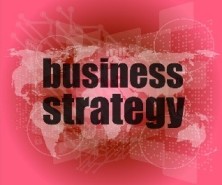
Long-term strategy is a roadmap to a desired vision of a future state.
Long-term strategies in business are ubiquitous; everyone has them. Just ask a business owner to tell you about his strategies and they will give you an earful. With such a focus on these strategies, why do so many of them fail?
The primary reason many strategies fail is that they are disconnected from the environment within which they must play. In effect, they are not designed to be clearly understood by those who must implement them. They are often filled with buzzwords, an over inflated goal/objective, and a lack of clarity. It sounds great, but it is hard to get your arms around. They are devoid of elaboration, so it is up to the individual to figure out what they mean.
Long-term strategies must be both precise and broad in scope. They are precise enough to enable the implementers to clearly understand the objective and broad enough to enable the implementers to journey beyond customary limitations; they have to be able to make adjustments to resources (time, people and money) based on what they are learning during implementation. They must have some flexibility.
Successful long-term strategies:
- are designed from a future perspective. You must develop a clear vision of that future state, and then design the path to get there.
- are carefully chosen from a list of possible strategies. It is a selection process; it is choosing the most important strategies that will have the greatest chance of being successfully implemented.
- require buy-in by senior management; i.e., commitment. Commitment must be observable.
- require providing direction and the distribution of responsibility.
- have a reasonable time frame; e.g., three to four years. In most businesses you cannot be precise enough in a six to ten-year strategy.
- require making difficult choices, specifically resource decisions (time, people and money). You must make decisions without prefect data and weigh the consequences of those decisions; both to the current state and to the strategy.
- are measurable; they have metrics.
- are executable living documents.
- are communicated to the proper levels of the organization.
Long-term strategies can simply be a great idea with limited action, or they can be a game plan with players on the field. Only the latter keeps score.
